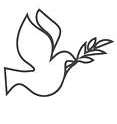
Demonstrators shout slogans during a protest against a purge of thousands of education staff since an attempted coup in July, in front of the main campus of Istanbul University at Beyazit square in Istanbul.
The crowd chanted "We will win by resisting" in front of Istanbul University as dozens of riot police wearing gas masks looked on. Teachers who had lost their jobs wept and hugged students.
Among those suspended or removed in the purges since July are nearly 50,000 educational staff. Under the coup probe, some 37,000 people have been jailed pending trial.
"We are facing a period worse than the coup," said Tahsin Yesildere, head of a university teaching staff group.
"In our country, which is being turned into a one-man regime through the state of emergency (declared after the coup), all those in opposition resisting this trend have become targets," he told Reuters, referring to President Tayyip Erdogan.
The scale of the crackdown has alarmed Turkey's Western allies and foreign investors. Human rights groups and opposition parties say Erdogan, who traces his political roots to a banned Islamist party, is using the coup as a pretext to muzzle all dissent in the European Union-candidate nation.
The interior ministry said on Thursday it had suspended 1,218 gendarmerie personnel on suspicion of links to Gulen.
Officials say such measures are justified by the threat to democracy posed by Gulen's followers, once strong supporters of Erdogan. More than 240 people were killed in the coup, when rogue soldiers commandeered tanks and fighter jets.
"TYRANNY"
"We won't surrender," said a banner held by protesters, echoing a headline in the opposition daily Cumhuriyet, whose editor and senior staff were detained this week on accusations their coverage had helped precipitate the coup.
"Our dismissal comes as part of the tyranny that is being built," Levent Dolek, a research assistant in economics at Istanbul University until last week. "Our removal is just a detail considering the darkness Turkey is drifting into."
Can Dundar, Cumhuriyet's editor until July and now overseas to avoid an arrest warrant, said Erdogan's campaign was aimed at the secular values of the Turkish state.
"The real war here is with the Turkish Republic," Dundar told Reuters in a phone interview. "This is not a fight for a newspaper, it is the fight for a country."
Dundar was sentenced in May to six years in prison for revealing state secrets in the newspaper and left Turkey before the coup while free on appeal. He described the charges that the secularist daily backed the Gulen network as "comical".
"We spent our entire careers, especially the last 10 years, explaining how dangerous the Gulen movement was," he said.
In a sign of how confused the crackdown has become, a prosecutor appointed to handle the case against the paper, Murat Inam, is himself a defendant in a case against suspected Gulenists.
"It is unfortunate such an appointment was made. I wish it hadn't been done," Justice Minister Bekir Bozdag said in parliament.
Turkish media showed video footage of what they said were the two putsch ringleaders arriving at Istanbul's main airport two days before the coup.
The reports said the men had been returning from one of several visits to the United States where they allegedly met Gulen, who has lived in self-imposed exile in Pennsylvania since 1999. He denies involvement.
Kemal Batmaz, who had headed a paper company, is in detention after being arrested in the coup's immediate aftermath, state-run Anadolu news agency said. Police are still searching for Adil Oksuz, a teacher.
Chief Ankara prosecutor Harun Kodalak told Anadolu that the two were key figures in the plot. He said court cases against coup suspects would be opened at the start of 2017.
